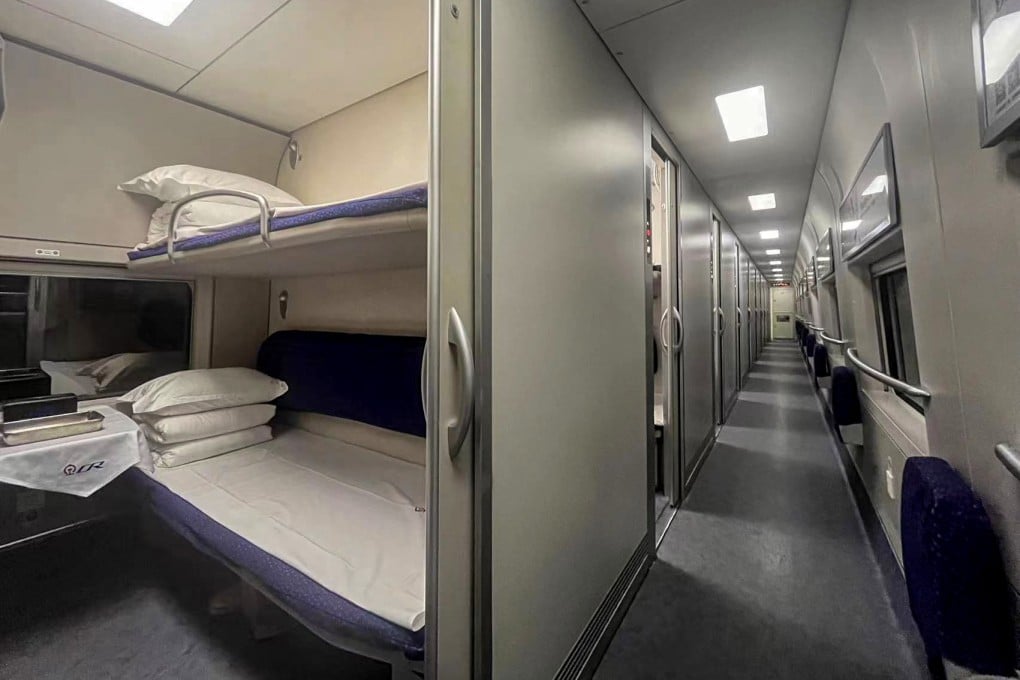Advertisement
High-speed sleeper trains to depart Hong Kong at night, arrive in Beijing, Shanghai in morning from June 15
- China Railway announces that through train to the two mainland cities will be replaced and upgraded with high-speed services
- Chief Executive John Lee welcomes new arrangement and expresses gratitude to central government and China Railway for their ‘care’
Reading Time:3 minutes
Why you can trust SCMP
19

High-speed sleeper trains will run overnight between Hong Kong, Beijing and Shanghai from this month in a new measure Chief Executive John Lee Ka-chiu has said will boost integration with mainland China.
China Railway said on Tuesday that the high-speed services would slash travel time by half, offer more seats at 600 and replace the suspended through train running between Hung Hom in Hong Kong and the two mainland cities.
The news effectively spells the end to the historical cross-border intercity through train services after more than 110 years of operation.
The service has been suspended since the Covid-19 outbreak in 2020.
High-speed trains operating a return service will leave from Hong Kong’s West Kowloon terminus and will only take around 12½ hours to get to Beijing West station and 11 hours and 14 minutes to pull into Shanghai Hongqiao station.
The overnight trains, running from Friday to Monday from June 15, will have a sleeper service.
Advertisement